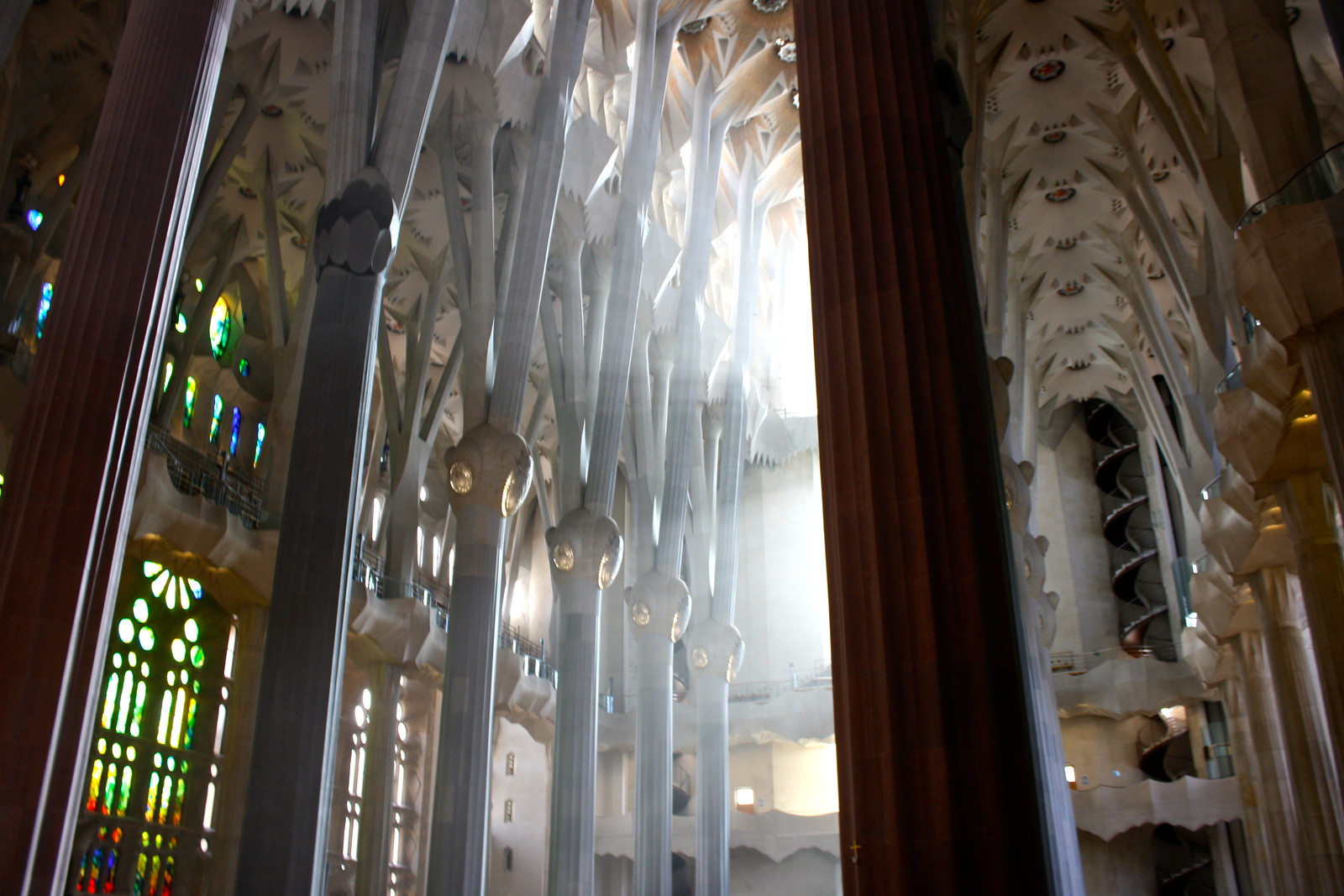Introducing the Architecture of Antoni Gaudí in Barcelona, Spain
When I was in Barcelona a year ago this February for a weekend Sigur Rós concert, I ended up spending most of my time in the city hunting down homes and churches designed by the famous Spanish architect Antoni Gaudí (pronounced “uhn-TOH-nee guh-oo-DEE” [ənˈtɔ.ni gəwˈði]). Born and raised in the Catalunya region of which Barcelona is the capital, Gaudi was associated with the Modernisme or Art Nouveau movement and worked in Spain in the 19th and 20th centuries. The buildings he planned are as much a symbol of the city of Barcelona as Frank Lloyd Wright’s are of Chicago.
Gaudí was fascinated by the natural world and by geometry, two fields of study that greatly influenced his design philosophy. Flowing, organic forms appear all over his buildings, and scary math terms like paraboloids, hyperboloids, and helicoids create arches and ceilings that are at once elegant and very structurally strong. Instead of making traditional blueprints, Gaudí devised a complex set of hanging chains that he attached to a ceiling to figure out the design for many of his religious commissions like the still-in-progress Sagrada Família or never-finished Colònia Güell. These catenary curves (from the Latin word for “chain,” catena) represent the shape that chains take when they’re suspended and allowed to droop down naturally under gravity’s force. Looking in a mirror on the floor, Gaudí would then make his plans for a building.
This unique combination of natural elements and geometric forms—a fusion of biology and mathematics—is what attracts me so much to his architecture. His early works, which are creative and original takes on the Gothic- and Mudéjar-Revival styles of his day, are also interesting, but his later commissions are simply fascinating because they’re just so different from conventional design.
Over the next week or so, I’m going to be publishing a post every day about one of Gaudí’s seven major works in Barcelona:
Have you ever been to Barcelona before? Are you a fan of its modernista or Art Nouveau buildings? Comment below!
 |
| Nave of the Sagrada Família basilica church |
Gaudí was fascinated by the natural world and by geometry, two fields of study that greatly influenced his design philosophy. Flowing, organic forms appear all over his buildings, and scary math terms like paraboloids, hyperboloids, and helicoids create arches and ceilings that are at once elegant and very structurally strong. Instead of making traditional blueprints, Gaudí devised a complex set of hanging chains that he attached to a ceiling to figure out the design for many of his religious commissions like the still-in-progress Sagrada Família or never-finished Colònia Güell. These catenary curves (from the Latin word for “chain,” catena) represent the shape that chains take when they’re suspended and allowed to droop down naturally under gravity’s force. Looking in a mirror on the floor, Gaudí would then make his plans for a building.
 |
| (Source: Wikipedia) |
This unique combination of natural elements and geometric forms—a fusion of biology and mathematics—is what attracts me so much to his architecture. His early works, which are creative and original takes on the Gothic- and Mudéjar-Revival styles of his day, are also interesting, but his later commissions are simply fascinating because they’re just so different from conventional design.
Over the next week or so, I’m going to be publishing a post every day about one of Gaudí’s seven major works in Barcelona:
- the Sagrada Família basilica church (February 17)
- the Casa Batlló personal home (February 18)
- the Park Güell public park (February 19)
- the Casa Milà / La Pedrera apartment block (February 20)
- the Palau Güell mansion (February 21)
- the Colònia Güell unfinished crypt-church (February 22)
- the Casa Vicens personal home (February 23)
Have you ever been to Barcelona before? Are you a fan of its modernista or Art Nouveau buildings? Comment below!